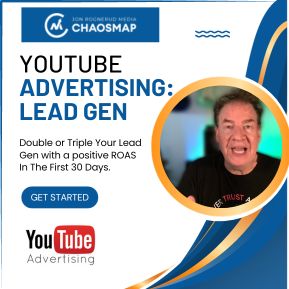Tracking social media is a two-fold approach.
![]() Know this: social media is a ‘media’ (press) darling. Consider how many posts and references show up for social media every hour, everyday.
Know this: social media is a ‘media’ (press) darling. Consider how many posts and references show up for social media every hour, everyday.
SEO, or search engine optimization, on the other hand – has been around a lot longer, but doesn’t get as much credit or love these days.
Perhaps our friendly journalists think they are the same? Hope not.
The professionals who understand the difference between user intent, tactics and overall strategies for the two forms of online marketing (drawing the line here), are clear that they both can have solid impact – for really any business.
SEO tends to be easier to track for many (keywords to conversion as an example), social media – not. But, if you cannot answer the “what and the why”, you’re not doing great in either, or you are just getting started.
It’s hard to track real ROI with social media marketing. (Really?)
For most businesses the best sales and marketing campaigns involve forming strong relationships with customers/clientele. It’s because of these relationships that companies can flourish and grow as they build trust and loyalty with their patrons.
As a result, it’s no doubt social media marketing found its way into the business arena. Effective networking is a key factor to implement in order to grow a business; and social media provides that opportunity.
Yet how does a business know if its social media marketing campaign is effective? How can the level of success be measured?
The answer is two-fold.
The first.
This is arguably the most important task to accomplish when deciding how to use social media marketing for your business. Determine your objective(s).
What is it you want to accomplish with your social media marketing efforts?
And, do you know what is going on right now in your marketplace (conversation)?
Whether your business is a PR firm, technology company, recruiting firm, nonprofit organization or a simple ice-cream parlor in a small town, there is something you want/need to accomplish with social media marketing.
It could be as tangible as increased sales and profits or less tangible like getting responses from customers about how to make improvements to your product or service. Or, getting success stories and testimonials to increase your credibility profile.
Maybe your purpose is simply to increase your product’s brand awareness. Whatever your objective is, that will be what is weighed in order to measure your social media marketing success.
Without a clear picture of your objective, the effectiveness of your social media marketing campaign can never truly be measured. We think in terms of baselines to compare with as you grow.
The second.
When you want to measure the ROI on social media marketing efforts, the second option is probably what is most commonly meant when the question is raised. That is (analytics) “tracking”.
With pay per click or sales tracking a business owner has a tangible means of measuring; however, with social media tracking it is much less straightforward and the method depends on the site and approach.
Facebook, for instance, might be measured by the number of confirmed friends and engagement on ads to posts and landing pages;
Twitter might be weighed by the quantity of retweets following a tweet; number of followers acquired in a month;
A Web Forum might look at the quantity and quality of its threads. The list goes on and will continue to grow as the world of social media continues to grow and evolve.
Free tools like Social Mention helps to capture “sentiment” – another metric that can be used for reputation management.
The bottom line is this: measuring the success of social media marketing is subjective, and each business must identify what objective it wants to accomplish. When that aim is being met, the business can say with confidence that its social media marketing campaign is effective and is a success.
Ultimately every business needs to have a plan in place that describes the goals and ROI objectives throughout the entire customer journey – from the first click, last attributed click and via the funnel.
Determine what the lifetime value is of your customer, break them down, and backtrack from there. Your advertising and marketing budget should be evaluated against total Return On Investment over time.
Next, try some tools that can help:
BudUrl, Bitly – track how many times people click on a link you share
Twitter Search – powerful search in real time, advanced search helps to drill down and inject yourself into the conversation as well
Twilert – Google alerts for Twitter – free
Google Analytics – free – ability to track traffic, content, referrers (where traffic came from) and a lot more. Make sure to install Google Tag Manager and set up Event tracking via Triggers.
Lead Generation EBook – Free download to learn the latest insights on how to create leads from social media and advertising overall
NEED SOME HELP? Contact Us Here and schedule your time.Jon Rognerud and Chaosmap work with Fortune 500 companies, associations and entrepreneurs to create digital traffic strategies that scale up members, customers, leads and sales with profitable returns. Mr. Rognerud wrote a best-selling book (Buy On Amazon), “The Ultimate Guide To Optimizing Your Website” (Entrepreneur). Connect directly here.







